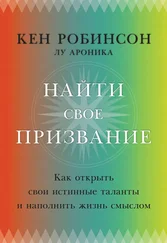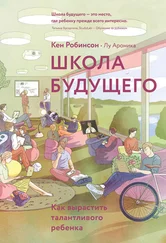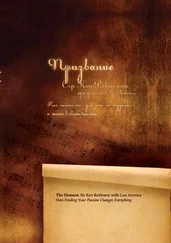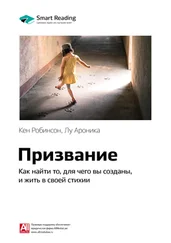Кен Робинсон - The Element
Здесь есть возможность читать онлайн «Кен Робинсон - The Element» весь текст электронной книги совершенно бесплатно (целиком полную версию без сокращений). В некоторых случаях можно слушать аудио, скачать через торрент в формате fb2 и присутствует краткое содержание. Год выпуска: 2009, ISBN: 2009, Издательство: Penguin Books Ltd, Жанр: Самосовершенствование, на английском языке. Описание произведения, (предисловие) а так же отзывы посетителей доступны на портале библиотеки ЛибКат.
- Название:The Element
- Автор:
- Издательство:Penguin Books Ltd
- Жанр:
- Год:2009
- ISBN:9780141911250
- Рейтинг книги:3 / 5. Голосов: 1
-
Избранное:Добавить в избранное
- Отзывы:
-
Ваша оценка:
- 60
- 1
- 2
- 3
- 4
- 5
The Element: краткое содержание, описание и аннотация
Предлагаем к чтению аннотацию, описание, краткое содержание или предисловие (зависит от того, что написал сам автор книги «The Element»). Если вы не нашли необходимую информацию о книге — напишите в комментариях, мы постараемся отыскать её.
The Element — читать онлайн бесплатно полную книгу (весь текст) целиком
Ниже представлен текст книги, разбитый по страницам. Система сохранения места последней прочитанной страницы, позволяет с удобством читать онлайн бесплатно книгу «The Element», без необходимости каждый раз заново искать на чём Вы остановились. Поставьте закладку, и сможете в любой момент перейти на страницу, на которой закончили чтение.
Интервал:
Закладка:
Taking It All for Granted
One of the key principles of the Element is that we need to challenge what we take for granted about our abilities and the abilities of other people. This isn’t as easy as one might imagine. Part of the problem with identifying the things we take for granted is that we don’t know what they are because we take them for granted in the first place. They become basic assumptions that we don’t question, part of the fabric of our logic. We don’t question them because we see them as fundamental, as an integral part of our lives. Like air. Or gravity. Or Oprah.
A good example of something that many people take for granted without knowing it is the number of human senses. When I talk to audiences, I sometimes take them through a simple exercise to illustrate this point. I ask them how many senses they think they have. Most people will answer five—taste, touch, smell, sight, and hearing. Some will say there’s a sixth sense and suggest intuition. Rarely will anyone offer anything beyond this.
There’s a difference, though, between the first five senses and the sixth. The five all have particular organs associated with them—the nose for smell, the eyes for sight, ears for hearing, and so on. If the organs are injured or compromised in any way, that sense is impaired. It isn’t obvious what does intuition. It’s a kind of spooky sense that girls are supposed to have more of. So, the general assumption among the wide range of people I’ve spoken with over the years is that we have five “hard” senses and a “spooky” one.
There’s a fascinating book by the anthropologist Kathryn Linn Geurts called Culture and the Senses . In it, she writes about her work with the Anlo Ewe people of southeastern Ghana. I have to say that I have a certain degree of sympathy for marginalized ethnic groups these days. It seems as though anthropologists are always stalking them—as if their average family unit includes three children and an anthropologist who sits around asking what they have for breakfast. Still, Geurts’s study was illuminating.
One of the things she learned about the Anlo Ewe is that that they don’t think of the senses in the same way that we do. First, they never thought to count them. That entire notion seemed beside the point. In addition, when Geurts listed our taken‐for‐granted five to them, they asked about the other one. The main one. They weren’t speaking of a “spooky” sense. Nor were they speaking of some residual sense that has survived among the Anlo Ewe but that the rest of us have lost. They were speaking of a sense that we all have, and that is fundamental to our functioning in the world. They were talking about our sense of balance.
The fluids and bones of the inner ear mediate the sense of balance. You only have to think of the impact on your life of damaging your sense of balance—through illness or alcohol—to get some idea of how important it is to our everyday existence. Yet most people never think to include it in their list of senses. This isn’t because they don’t have a sense of balance. It’s because they’ve become so accustomed to the idea that we have five senses (and maybe a spooky one) that they have stopped thinking about it. It’s become a matter of common sense. They just take it for granted.
One of the enemies of creativity and innovation, especially in relation to our own development, is common sense. The playwright Bertolt Brecht said that as soon as something seems the most obvious thing in the world, it means that we have abandoned all attempts at understanding it.
If you didn’t guess right away that the other sense was balance, don’t take it too hard. The fact is that most of the people I speak with don’t guess it either. And yet this sense is at least as important as the five we take for granted. And it isn’t alone among those we fail to consider.
Physiologists largely agree that in addition to the five we all know about, there are four more. The first is our sense of temperature (thermoception). This is different from our sense of touch. We don’t need to be touching anything to feel hot or cold. This is a crucial sense, given that we can only survive as human beings within a relatively narrow band of temperatures. This is one of the reasons we wear clothes. One of them.
Another is the sense of pain (nociception). Scientists now generally agree that this is a different sensory system from either touch or temperature. There also seem to be separate systems for registering pains that originate from the inside or the outside of our bodies. Next is the vestibular sense (equilibrioception), which includes our sense of balance and acceleration. And then there is the kinesthetic sense (proprioception), which gives us our understanding of where our limbs and the rest of our body are in space and in relationship to each other. This is essential for getting up, getting around, and getting back again. The sense of intuition doesn’t seem to make the cut with most physiologists. I’ll come back to it later.
All of these senses contribute to our feelings of being in the world and to our ability to function in it. There are also some unusual variations in the senses of particular people. Some experience a phenomenon known as synesthesia, in which their senses seems to mingle or overlap: they may see sounds and hear colors. These are abnormalities, and seem to challenge even further our commonsense ideas about our common senses. But they illustrate how profoundly our senses, however many we have and however they work, actually affect our understanding of the world and of ourselves. Yet many of us don’t know or have never thought about some of them.
Not all of us take our sense of balance or other senses for granted. Take Bart, for example. When he was a baby in Morton Grove, Illinois, Bart wasn’t particularly active. But when he was around six years old, he started to do something very unusual. It turned out that he could walk on his hands nearly as well as he could walk on his feet. This wasn’t an elegant sight, but it did get him lots of smiles, laughter, and approval from his family. Whenever visitors came to the house, and at family parties, people prompted Bart to perform his signature move. With no further cajoling—after all, he quite enjoyed both his trick and the attention it generated—he dropped onto his hands, flipped up, and proudly teetered around upside down. As he got older, he even trained himself to go up and down the stairs on his hands.
None of this was of much practical use, of course. After all, it wasn’t as though the ability to walk on his hands was a skill that led to higher test scores or was marketable in any way. However, it did do wonders for his popularity—a person who can climb stairs upside down is fun to be around.
Then one day, when he was ten, with his mother’s approval, his grade‐school physical education teacher took him to a local gymnastics center. As he walked in, Bart’s eyes bulged in amazement. He’d never seen anything so wondrous in his life. There were ropes, parallel bars, trapezes, ladders, trampolines, hurdles— all kinds of things upon which he could climb, cavort, and swing. It was like visiting Santa’s workshop and Disneyland at the same time. It was also the ideal place for him. His life turned in that moment. Suddenly his innate skills were good for something more than amusing himself and others.
Eight years later, after countless hours of jumping, stretching, vaulting, and lifting, Bart Conner stepped onto the mat in the gymnastics hall at the Montreal Olympics to represent the United States of America. He went on to become America’s most decorated male gymnast ever and the first American to win medals at every level of national and international competition. He has been a USA champion, an NCAA champion, a Pan‐American Games champion, a World champion, a World Cup champion, and an Olympic champion. He was a member of three Olympic teams, in 1976, 1980, and 1984. In a legendary performance in the 1984 Los Angeles Olympics, Bart made a dramatic comeback from a torn biceps injury to win two gold medals. In 1991, he was inducted into the U.S. Olympic Hall of Fame, and in 1996 into the International Gymnastics Hall of Fame.
Читать дальшеИнтервал:
Закладка:
Похожие книги на «The Element»
Представляем Вашему вниманию похожие книги на «The Element» списком для выбора. Мы отобрали схожую по названию и смыслу литературу в надежде предоставить читателям больше вариантов отыскать новые, интересные, ещё непрочитанные произведения.
Обсуждение, отзывы о книге «The Element» и просто собственные мнения читателей. Оставьте ваши комментарии, напишите, что Вы думаете о произведении, его смысле или главных героях. Укажите что конкретно понравилось, а что нет, и почему Вы так считаете.












